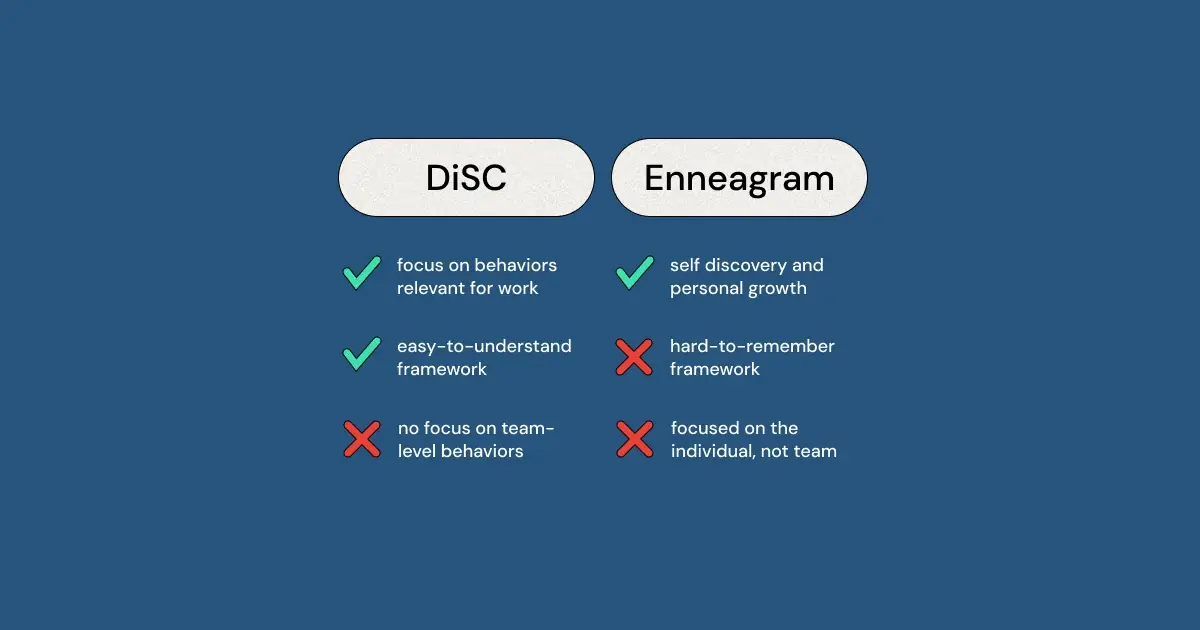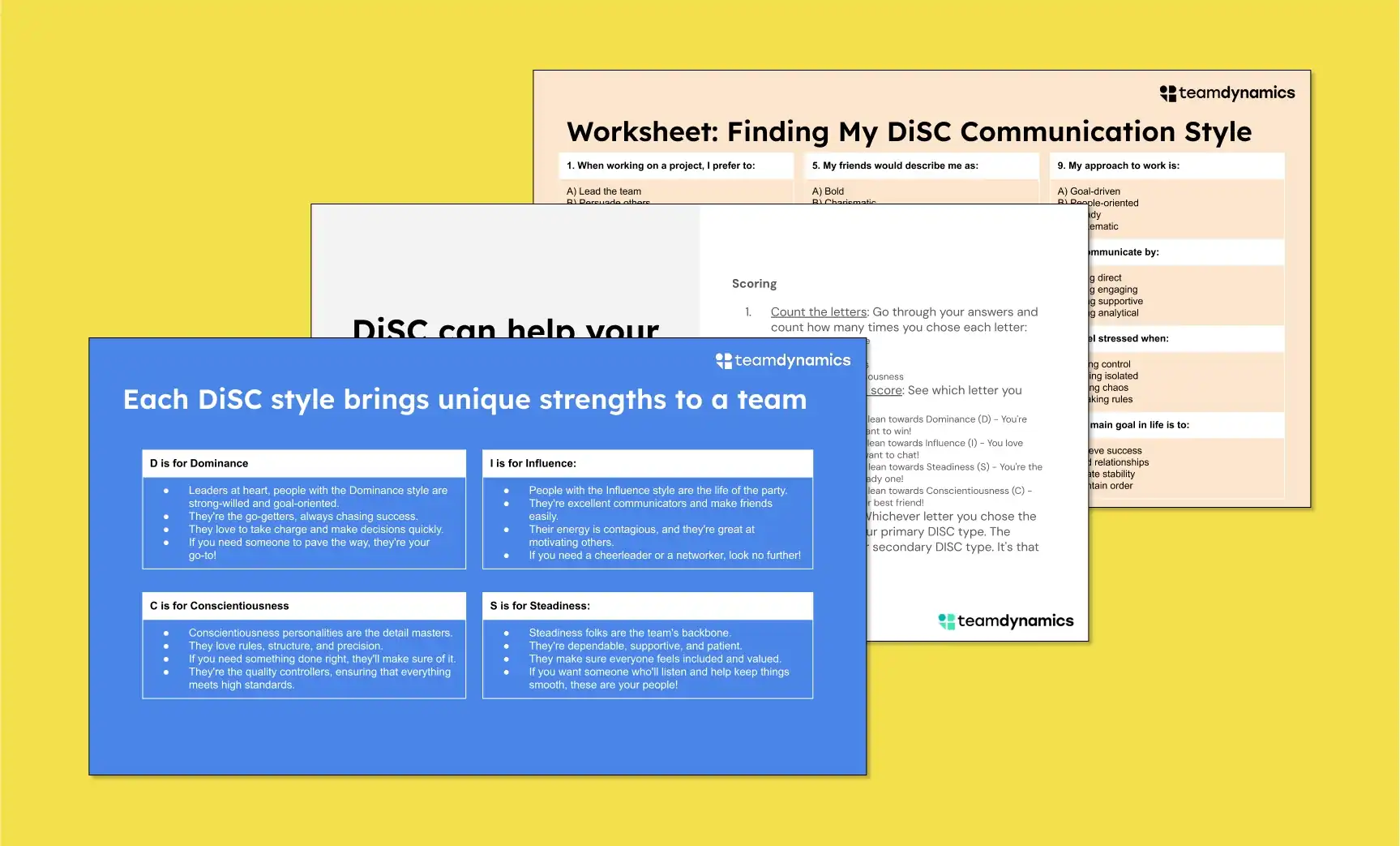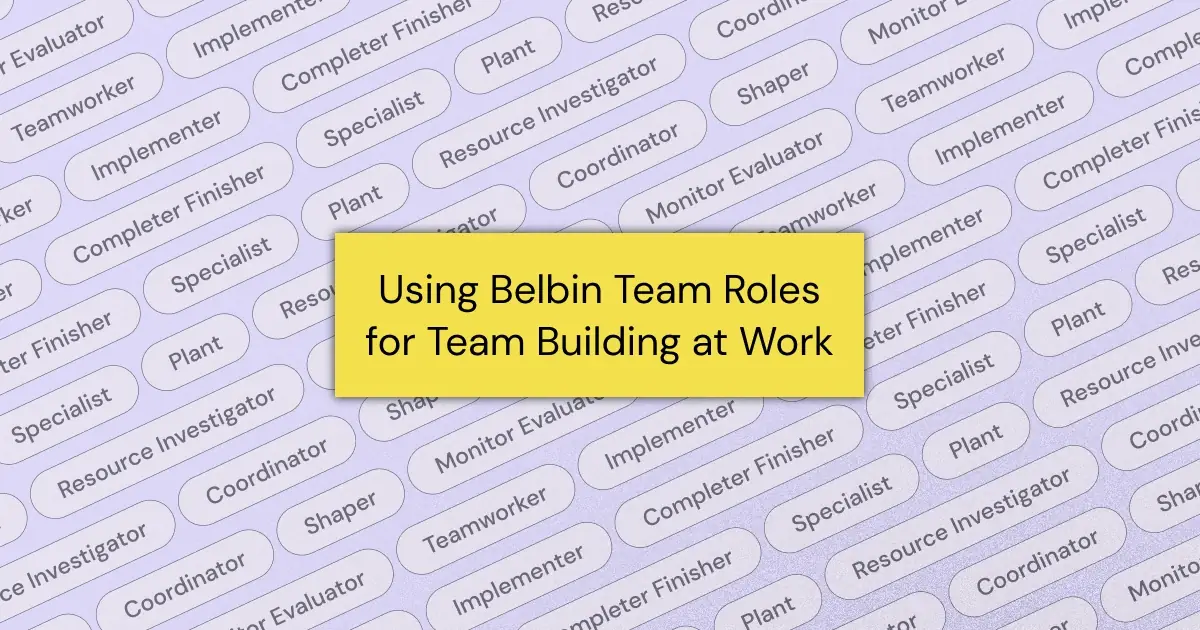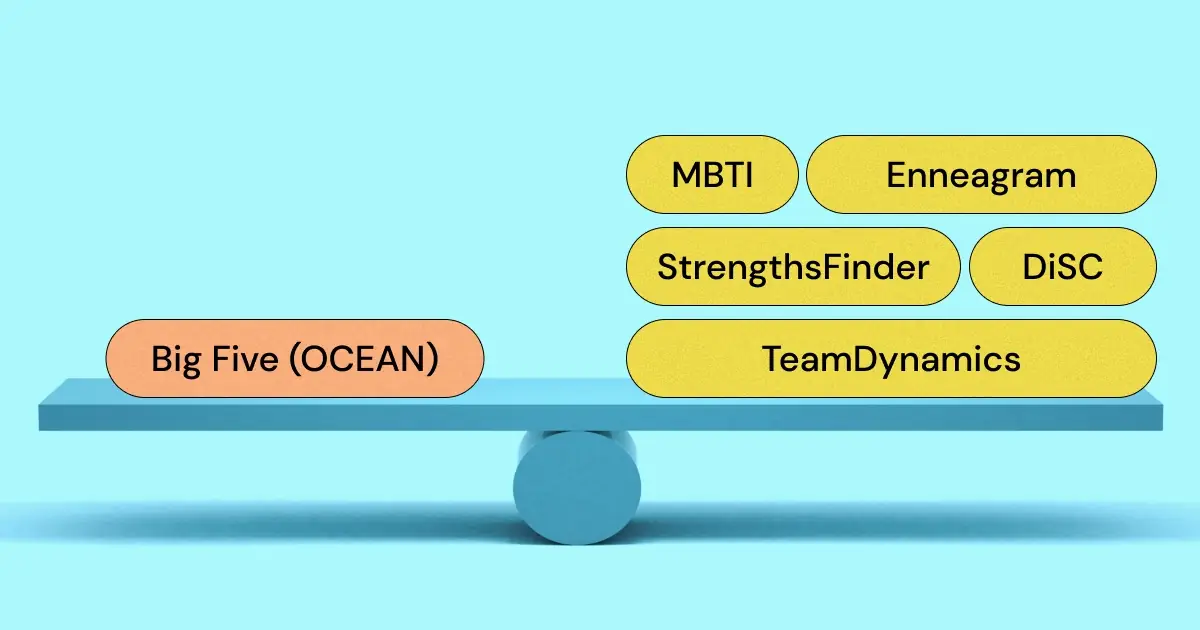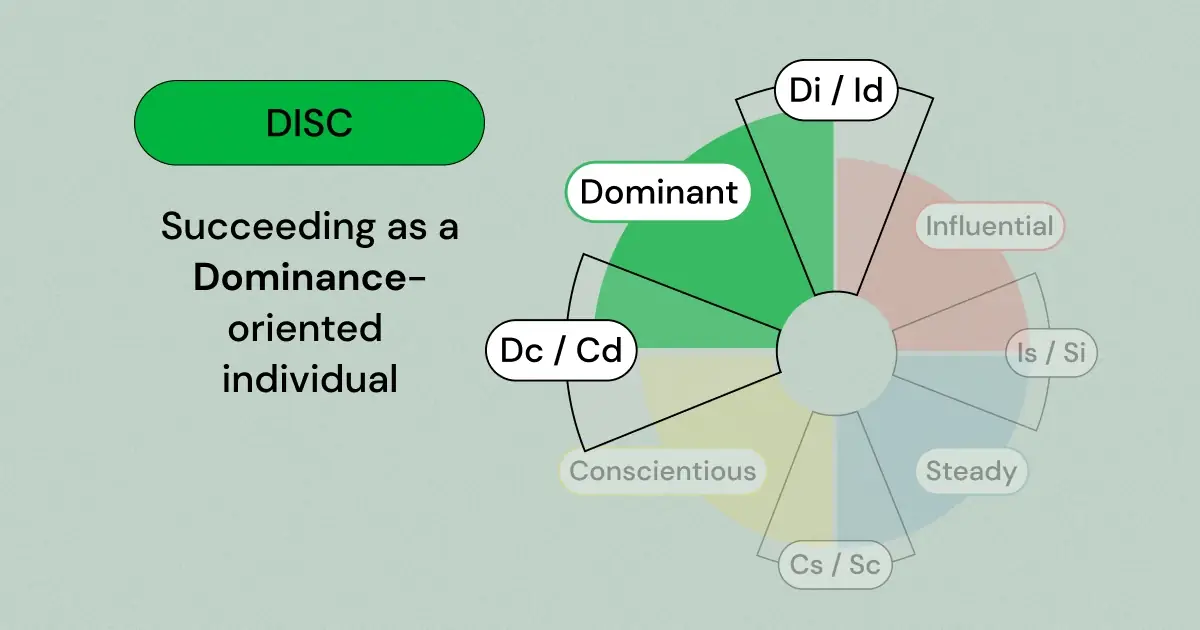??What is the main difference between the DiSC and Enneagram personality assessments???
The primary difference between DiSC and Enneagram lies in their focus. DiSC assesses behavior through four dimensions—Dominance, Influence, Steadiness, and Conscientiousness—making it easy to use in workplace settings for communication and leadership development. Enneagram, on the other hand, focuses on deeper emotional motivations, fears, and personal growth across nine personality types, offering a more introspective and spiritually aligned approach to personality discovery.
??Which personality test is better for professional development: DiSC or Enneagram???
DiSC is generally better suited for professional development because of its straightforward framework and actionable insights into communication, conflict resolution, and decision-making. It's commonly used in hiring, leadership training, and team-building. While the Enneagram can also be used professionally, its primary strength lies in promoting self-awareness and personal growth.
??How does the DiSC personality test work???
The DiSC assessment measures personality based on four dimensions: Dominance, Influence, Steadiness, and Conscientiousness. Each person receives a primary and secondary type based on their behavior patterns. These types reveal how individuals prefer to communicate, solve problems, and interact with others in various contexts.
??How does the Enneagram assessment work???
The Enneagram categorizes individuals into one of nine personality types, each with specific motivations, fears, and emotional behaviors. It also includes "wings" (adjacent personality types that influence a person's primary type) and tracks changes in personality under stress or growth, allowing for a multidimensional understanding of behavior.
??Is DiSC easier to use than the Enneagram???
Yes, DiSC is considered easier to use because of its simple, four-quadrant model. It provides clear, actionable strategies and is quick to administer. In contrast, the Enneagram can be more complex due to its nine types, wings, and integration/disintegration paths, which may require more time and reflection to fully grasp.
??What are the advantages of using the DiSC assessment???
DiSC is easy to understand, quick to complete, and offers practical advice for improving communication and leadership. It's widely used in professional settings where clear behavioral insights can lead to better workplace relationships and team functionality.
??What are the strengths of the Enneagram personality test???
The Enneagram provides deep insights into emotional patterns, core motivations, and personal growth opportunities. It's ideal for individuals seeking self-awareness, spiritual development, and a better understanding of their emotional triggers and behavior under stress.
??Can DiSC or Enneagram improve team performance???
While both tools offer valuable insights into individual behavior, neither DiSC nor Enneagram is specifically designed to enhance team performance. For that purpose, tools like TeamDynamics are more effective as they focus directly on improving collaboration, cohesion, and productivity within teams.
??What are the limitations of the DiSC personality test???
DiSC has a limited scope in terms of emotional or motivational depth. It focuses primarily on observable behaviors and does not delve into psychological or internal drivers. Additionally, it may not fully address team dynamics or interpersonal synergy.
??Why should someone choose the Enneagram over DiSC???
Someone might choose the Enneagram over DiSC if they are looking for a deeper understanding of their inner motivations, emotional responses, and long-term personal development. The Enneagram is especially useful for people interested in spirituality, emotional intelligence, and self-improvement.


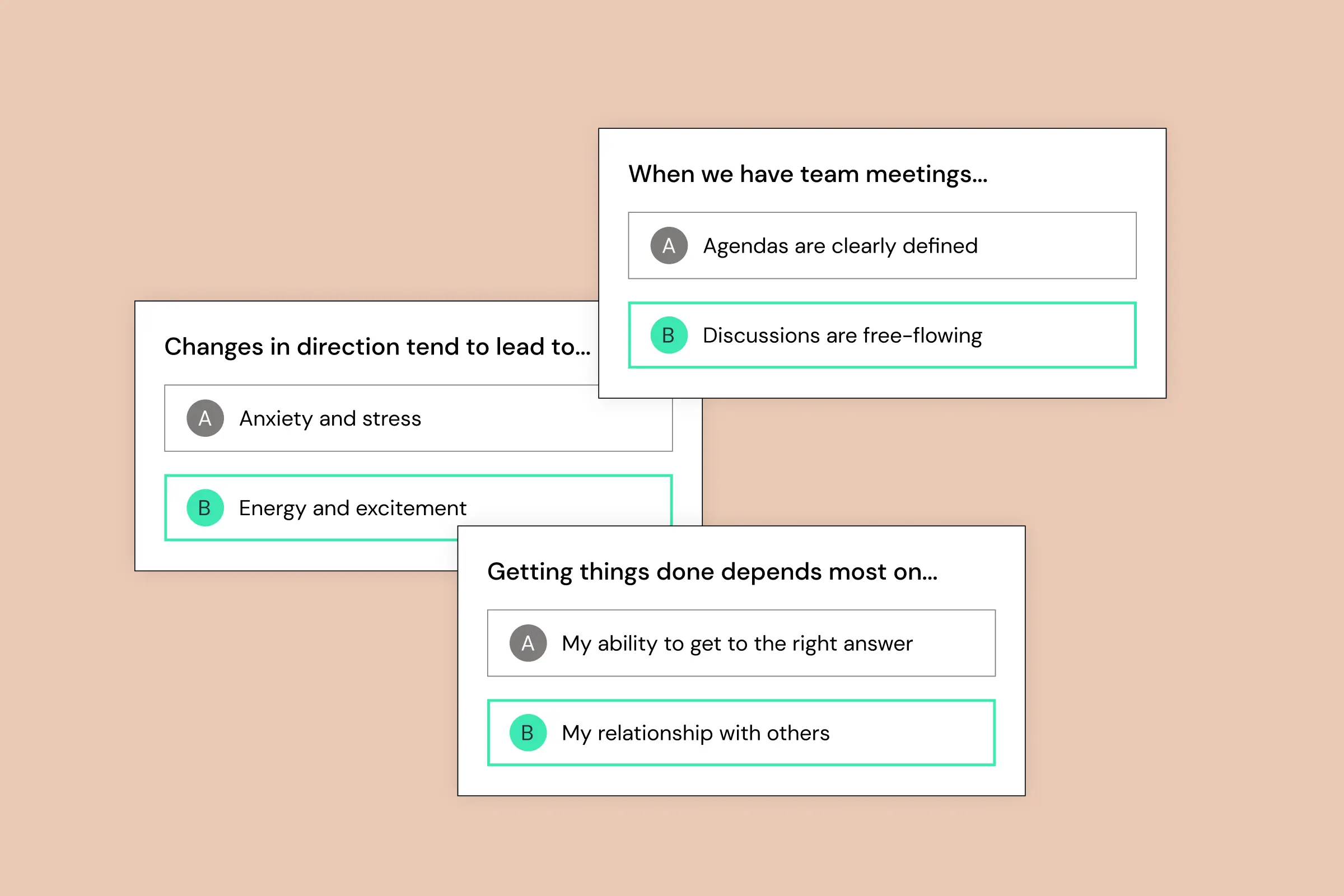

.png)
